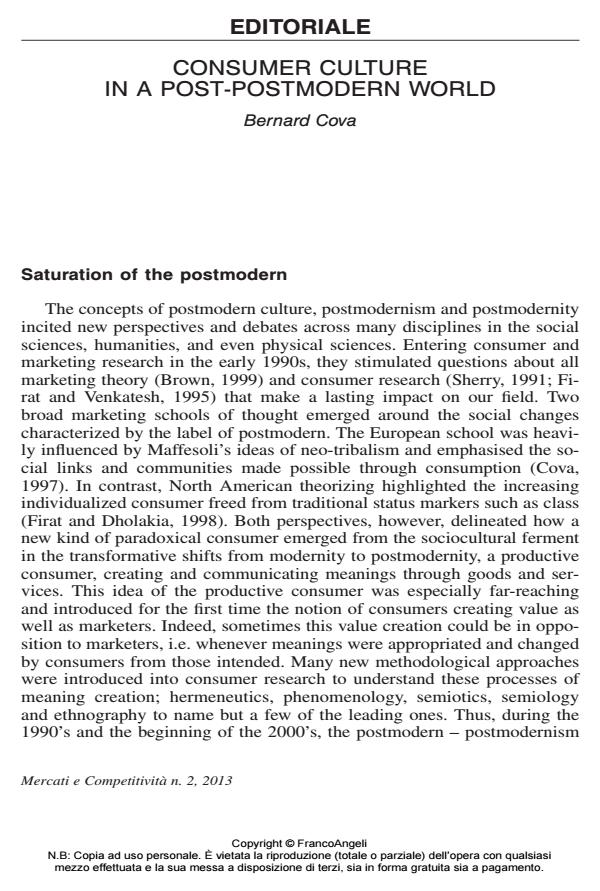Consumer culture in a post-postmodern world
Titolo Rivista MERCATI & COMPETITIVITÀ
Autori/Curatori Bernard Cova
Anno di pubblicazione 2013 Fascicolo 2013/2
Lingua Italiano Numero pagine 8 P. 5-12 Dimensione file 474 KB
DOI 10.3280/MC2013-002001
Il DOI è il codice a barre della proprietà intellettuale: per saperne di più
clicca qui

FrancoAngeli è membro della Publishers International Linking Association, Inc (PILA), associazione indipendente e non profit per facilitare (attraverso i servizi tecnologici implementati da CrossRef.org) l’accesso degli studiosi ai contenuti digitali nelle pubblicazioni professionali e scientifiche.
- Il gioco delle parti: la relazione marca-consumatore nel contesto del gaming Silvia Biraghi, Rossella C. Gambetti, in MERCATI E COMPETITIVITÀ 1/2015 pp.97
DOI: 10.3280/MC2015-001006 - A backlash against the high‐speed modernity of gastronomy tourism: An analysis of the evolution of Macanese cuisine Ke Song, Hokkun Wan, Qiaoran Jia, in Asia Pacific Viewpoint /2024 pp.171
DOI: 10.1111/apv.12412 - Mediterranean marketing and postmodern marketing: An oxymoron? Olivier Badot, in Journal of Consumer Behaviour /2014 pp.224
DOI: 10.1002/cb.1467 - The passing of the postmodern in pop? Epochal consumption and marketing from Madonna, through Gaga, to Taylor Brendan Canavan, Claire McCamley, in Journal of Business Research /2020 pp.222
DOI: 10.1016/j.jbusres.2018.12.005
Bernard Cova, Consumer culture in a post-postmodern world in "MERCATI & COMPETITIVITÀ" 2/2013, pp 5-12, DOI: 10.3280/MC2013-002001